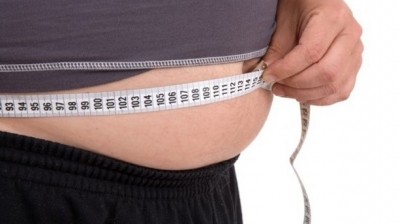‘Short term’ weight control approaches call for new interventions: Cochrane reviews

One of the two studies, focusing on children aged six-11 found that compared to no treatment or usual care, interventions combining diet, physical activity and behaviour change have a minor, temporary effect in reducing children's weight and body mass index (BMI).
The variation in results—a result of low quality evidence—was sufficient proof to the researchers that more research was needed to explore the range of findings more fully.
“These reviews are important because they provide the most up-to-date evidence to show that behaviour changing interventions can help treat children with overweight and obesity,” said Dr Emma Mead, lead study author at the School for Health and Social Care, at Teesside University in the UK.
“However, we need to do more work to understand how to maintain the positive effects of the intervention after it has finished, and understand which interventions work best in lower income countries, and for families from different socio-demographic backgrounds."
Public health crisis
The prevalence of overweight and obese children and adolescents has all the hallmarks of a global public health crisis.
According to World Health Organization (WHO) growth standards, over 42 million children under five years of age were overweight or obese in 2010.
Approximately 35 million of these children live in low- to middle-income countries.
The childhood review (six-11) assesses evidence from 70 studies carried out in over 8,000 six-11 year olds from Europe and the USA amongst other locations.
Most studies compared behaviour-changing interventions with no treatment or usual care. The majority of trials involved both the child and their parents or caregivers.
Adolescents made up 44 of the completed studies that enrolled just under 5000 young people with overweight or obesity-related issues. These subjects were aged 12-17 years.
These studies largely focused on the combined effects of diet, physical activity and behavioural change interventions.
50 further studies are still ongoing and have not yet reported their results.
Review results
Along with the small, short-term effects of reducing children's weight and body mass index, the researchers also found that in the 12-17 year old sample, combinations of diet, physical activity and behaviour change reduce an adolescent's weight by about three and a half kilograms (kg).
Additional low quality evidence also pointed to these interventions in reducing body mass index by just over one kg/m2.
These effects were maintained in longer-term trials, which lasted for up to two years and contributed to a moderately improved quality of life.
“Approaches that combine several interventions can be effective to tackle overweight and obesity in teenagers,” said Dr Lena Al-Khudairy, lead study author of the adolescent review and research fellow from the Division of Health Sciences at the University of Warwick in the UK.
“But we still need to know more about what specific components are most effective and in whom, and importantly learn more about adolescents' views about the interventions."
Expert reaction to the two Cochrane reviews were in general agreement.
Dr Amelia Lake, dietitian and public health nutritionist at Durham University, said that finding effective methods of treatment was of high importance.
“With both children and adolescents there was great variability in what the interventions delivered and what was measured, as well as there being differing lengths of time in following up participants.”
“Treatment of obesity and overweight is complex – evidence suggests that combining diet, physical activity and behaviour change can reduce adolescents’ weight.”
Professor Russell Viner, officer for health promotion, Royal College of Paediatrics and Child Health added that the reviews suggested improvements that should be made by testing new approaches and delivery methods.
“We know that healthy children make healthy adults and that prevention is by far preferable to cure. We therefore need a new and sustained research focus to develop new interventions which include younger infants, who are missing from these reviews.”
Source: Cochrane Reviews
Published online ahead of print: DOI: 10.1002/14651858.CD012651 / DOI: 10.1002/14651858.CD012691
Diet, physical activity and behavioural interventions for the treatment of overweight or obese children from the age of 6 to 11 years.”
“Diet, physical activity and behavioural interventions for the treatment of overweight or obese adolescents aged 12 to 17 years.”
Authors: Emma Mead et al / Lena Al-Khudairy et al.

















